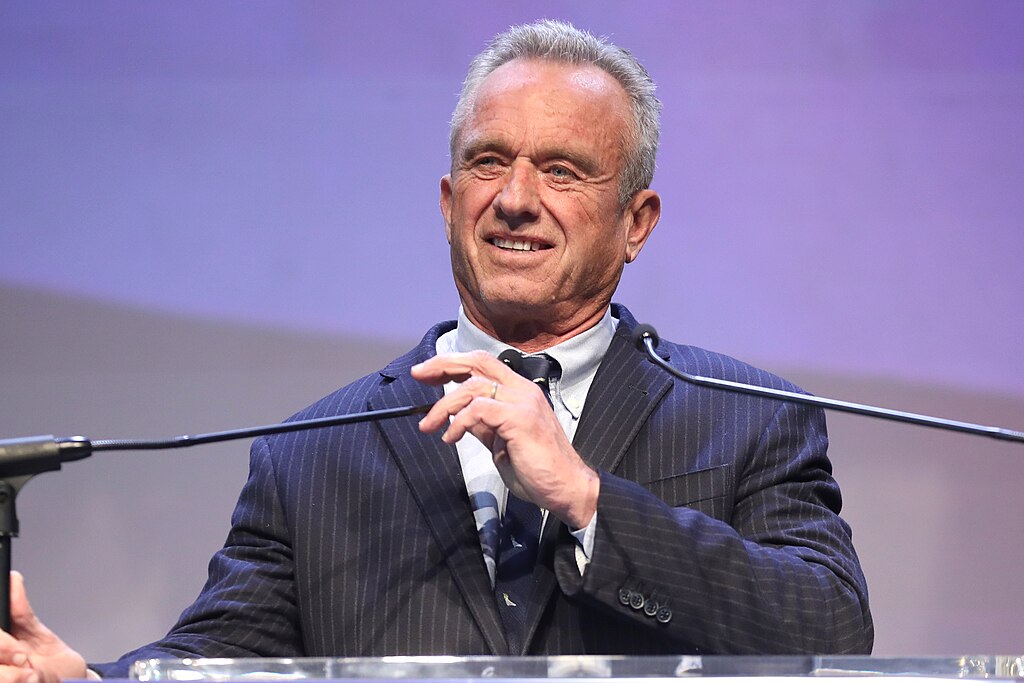A New Era of Health: Secretary Robert F. Kennedy Jr.’s Vision for Wearable Technology
A Transformative Initiative
In a bold move to redefine healthcare in the United States, U.S. Health and Human Services Secretary Robert F. Kennedy Jr. recently unveiled plans for a nationwide advertising campaign aimed at encouraging Americans to adopt health wearables such as heart rate monitors and continuous glucose monitors. This initiative is part of the broader “Making America Healthy Again” (MAHA) agenda, a commitment to improving individual health management through innovative technology.
Speaking before the House Energy and Commerce Committee’s Health Subcommittee, Kennedy laid out his vision for a future in which personal health data becomes a routine part of daily life. He projected that within four years, “every American is wearing a wearable.” This emphasis on personal health tracking reflects a shift toward empowering individuals to take control of their well-being. By enabling users to see real-time impacts of dietary choices on health metrics like glucose levels and heart rate, Kennedy believes wearables can play a pivotal role in preventive health.
Market Response and Economic Implications
The announcement has already begun to resonate in the stock market, with shares of leading glucose-monitoring device manufacturers showing significant gains. For instance, Dexcom’s stock (NASDAQ:DXCM) surged by 10%, while Abbott saw an increase of 3.6% in afternoon trading. This reaction underscores the optimism surrounding the wearable tech sector and the potential boost that governmental support can lend to emerging health technologies.
Kennedy’s proposal could indeed revolutionize the way health is monitored. By advocating for wearables to facilitate health tracking, the initiative not only introduces new technology but also hints at a potential paradigm shift in how preventive healthcare is viewed and utilized by the general public.
Cost-Effectiveness Over Pharmaceuticals
One of the striking aspects of Kennedy’s announcement is his critique of the current reliance on pharmaceutical solutions for health management. The Secretary noted the financial burden of popular weight-loss drugs like Ozempic, which can cost patients around $1,300 a month. In contrast, he emphasized the affordability of wearable technology, which can provide similar health benefits for approximately $80. This economic perspective may resonate with many Americans seeking accessible and pragmatic health solutions.
While Kennedy acknowledges the importance of pharmaceutical interventions—especially for patients battling morbid obesity or diabetes—he emphasizes that wearables present a cost-effective alternative that can complement drug therapies when paired with lifestyle changes such as exercise.
A Paradigm Shift in Health Management
The campaign outlined by Kennedy is poised to be one of the largest in Health and Human Services history. It seeks not merely to encourage the purchase of health wearables but to fundamentally shift the focus of healthcare from reactive to proactive management. The hope is that by integrating wearables into daily life, individuals can better monitor their health and make informed decisions, ultimately leading to improved health outcomes and reduced healthcare costs.
Kennedy also hinted at potential future policies aimed at subsidizing health wearables, making them more financially accessible to a broader audience. The idea is to break down barriers that might discourage individuals from investing in their health.
Cautions on Policy and Coverage Changes
However, not everyone shares the same optimism regarding immediate changes in healthcare policy. J.P. Morgan analyst Robbie Marcus warned against making assumptions about swift adjustments in Medicare or insurance coverage for proactive health monitoring. According to Marcus, it remains premature to predict how governmental policies may evolve in response to Kennedy’s proposal. The path to integrating wearables into standard healthcare practices could be more complex than anticipated.
Growing Acceptance of Wearable Technology
Regardless of the challenges that lie ahead, the wearable tech market stands poised for substantial expansion in light of this government push. As health monitoring tools become increasingly integrated into personal wellness strategies, they are likely to gain broader acceptance among consumers.
In this era of advancing technology, the integration of health wearables into everyday life could herald a profound shift in how individuals approach their health, making personal health data as common as smartphones in the pursuit of a healthier America.


